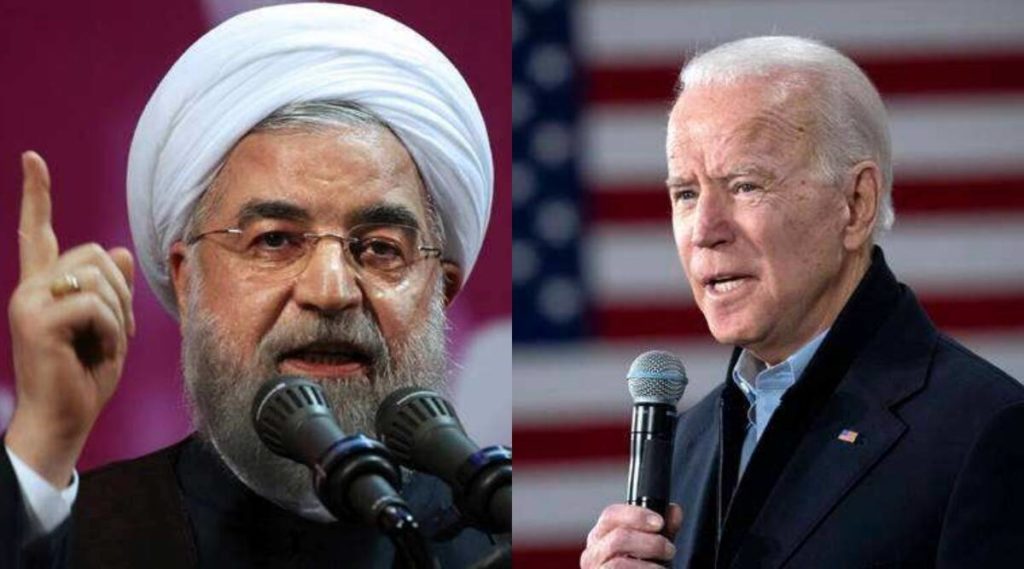IN THE MEDIA
The Biden Administration’s challenge on Iran
January 19, 2021 | Jamie Hyams

A version of this article was published in the Canberra Times – 19 January 2021
As Clive Williams pointed out in his January 12 article on these pages, “Until January 20, we must hope Donald Trump forgets about Iran”, one relationship the incoming Biden administration will be looking to recalibrate will be that with Iran. This will likely involve efforts to restore the US participation in the 2015 Joint Comprehensive Plan of Action or JCPOA nuclear deal, which the Trump Administration withdrew from in 2018.
This does not mean however, that Biden will, or should, re-enter the deal in its current form. In fact, if Biden intends the JCPOA to prevent Iran obtaining nuclear weapons, and to moderate its other rogue behaviour, he needs to first insist that Iran return to full compliance with the deal, and then significantly renegotiate or expand it.
He has the scope to do so because the sanctions Trump applied after withdrawing from the deal are biting hard on Iran’s economy, notwithstanding Iranian insistence that it will only re-enter the JCPOA on terms more favourable to it.
Iran was in breach of the JCPOA even before the US withdrawal, including by concealing its previous nuclear weapons program, as revealed by a daring Israeli raid on the program archive in Teheran. Inspectors from the International Atomic Energy Agency have also recently found evidence of previously unknown forbidden nuclear activity in the past.
Iran has since committed numerous further breaches, including increasing the quality and quantity of nuclear-related materials beyond permitted limits and contravening other provisions related to nuclear facilities. Now Iran has threatened to expel or limit nuclear inspectors, and to enrich uranium to 20%, far higher than the 3.67% permitted by the JCPOA. This would greatly reduce the time needed to achieve weapons capability.
The deal must be renegotiated because it is fatally flawed. Rather than preventing Iran from becoming nuclear-armed, it paves the way for the regime to legally achieve this. There are various sunset provisions in the deal, which mean that the restrictions preventing Iran producing nuclear weapons are removed once relevant dates are reached – most within a few short years.
The theory was that once sanctions were removed, and the country was able to prosper, Iran would become a more responsible nation, and the restrictions would no longer be needed. However, this has not been the case at all.
Other problems with the deal are that various loopholes allow Iran to limit inspections, and continue work on nuclear-capable missiles. The deal must therefore be renegotiated to remove the sunset clauses, prohibit the missile activity and tighten the inspection regime.
A further flaw is that the deal neglects Iran’s other rogue state activities, which make it the world’s foremost state sponsor of terrorism. Iran’s regime sees itself as revolutionary, and therefore compelled to export its revolution and achieve hegemony over the Middle East. To further this goal, it uses terror groups and militia that it arms, funds and directs to destabilise its neighbours.
Examples include Hezbollah, which controls Lebanon, supplied the bulk of the foot soldiers that propped up the murderous Assad regime in Syria’s civil war, threatens Israel with well over 100,000 missiles and has carried out terror attacks and drug and other crime all over the world; various powerful militia in Iraq; Hamas and Palestinian Islamic Jihad in Gaza, which constantly attack Israel; and the Houthis who have overthrown Yemen’s legitimate government and sporadically attack Saudi Arabia.
Following the killing of al-Qaeda second in command Abu Muhammad al-Masri in Teheran last August, it emerged that Iran’s regime is also hosting that terror group.
The many billions of dollars made available to the regime when sanctions were removed under the JCPOA went towards this terror proliferation effort, and towards the regime’s instruments of internal repression, rather than toward improving the lives of Iran’s people.
Lest there be any doubt about the regime’s intention to continue in this vein, Iran’s parliament is currently debating a bill, expected to pass, that would require all future governments to work towards the destruction of Israel by 2041.
The Iranian body responsible for almost all of this activity is the Islamic Revolutionary Guard Corps (IRGC). The key leader of this organisation, and therefore the world’s arch-terrorist, was General Qassem Soleimani, who was killed in a US missile strike in January last year. Tellingly, the head of Iran’s nuclear program, Mohsen Fakhrizadeh, who was shot dead last November, was also a senior officer in the IRGC.
The greatest threat to Middle East and perhaps world peace today is Iran’s revolutionary regime – so it is hardly surprising that most Middle East actors, including Israel, Saudi Arabia, Egypt, the UAE, Bahrain and Morocco are clamouring for the Biden administration to act firmly and urgently on the Iranian file.
Joe Biden has the opportunity to lessen the threat, but to do so, he must insist on full Iranian compliance with the JCPOA, must renegotiate the deal so that it genuinely prevents Iran from producing nuclear weapons and circumscribes its other rogue state activities, and must maintain the sanctions until Iran agrees. Otherwise, the damage to international peace will most likely be both massive and irreversible.
Jamie Hyams is a senior policy analyst at the Australia/Israel & Jewish Affairs Council (AIJAC).
Tags: Iran, JCPOA, Joe Biden, United States





